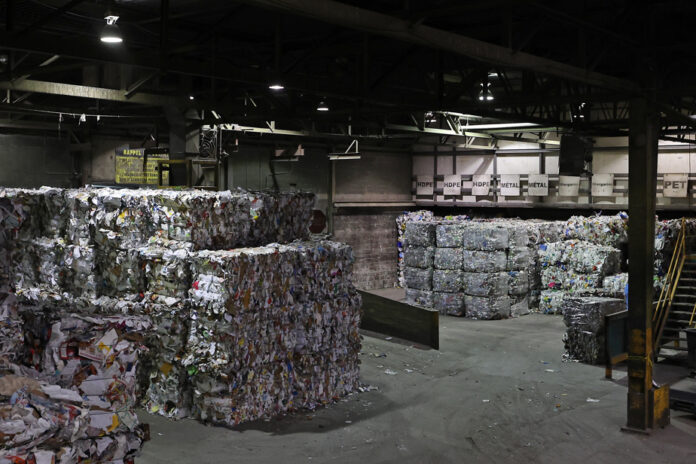The federal government used the strong method to prevent the Ricova company from sending poorly sorted recycling from Montrealers to developing countries, reveal unpublished court documents.
Last fall, Ottawa blocked several containers of the recycler that were about to set sail and placed it under strict operating conditions.
Ricova is “initiating procedures to export without a permit containers loaded with various paper and cardboard waste mixed with various plastic waste and other types of waste,” Environment Canada said after inspecting several of the company’s recycling bales at the port. from Montreal. A contravention of laws and international conventions that strictly regulate the export of waste.
The recycler has also admitted that he did not respect the rules. “A grace period of 10 to 12 months would be needed to adapt our industry to the requirements,” Ricova wrote in a letter to Environment Canada. Ricova’s paper bales contained up to 35% other materials, well above legal export levels.
These inspections came in the wake of the broadcast of a report by Enquête showing that part of the blue bin for Montrealers ended up in India, where plastic waste is regularly used as fuel. Part of the local population complains of serious health problems related to pollution.
Ottawa’s actions have led to a crisis, the company said. Unable to get them out of the country, Ricova had to pile up the recycling bales in and around its sorting centers, posing a risk of fire and collection interruption. In September, Montreal asked for help from Quebec paper companies and removed Ricova from the Lachine sorting center to resolve the situation.
Behind the scenes of this recycling crisis is emerging because Ricova tried to challenge Ottawa’s actions before the Environmental Protection Tribunal of Canada.
“Our many customers located in India have never refused any of our shipments since 2009, pleaded the company in its procedure. How can the Canadian government implement such a law without prior training and information to companies? The cessation of our exports to India without notice in 2022 under a regulation that has been in place since 2010 represents a disaster for our industry. »
This OEPE forced it to stop illegal exports, send an environmental plan to Ottawa and inform Environment Canada of any future exports.
“To date, those affected by the EPCO do not comply with it,” concluded the federal official in charge of its application in an affidavit last October. In particular, he cited export attempts made without warning him.
The Environmental Protection Tribunal of Canada will never consider the merits of the case: Ricova had 30 days to challenge the EPCO, but her documents arrived two days late. She blames FedEx.
“The Tribunal finds that the plaintiffs have failed to demonstrate that an [extension] of the time limit would be in the public interest,” the Tribunal concludes in a decision dated November but made public this month. “The public interest obviously includes the protection of the environment. The Tribunal finds that it is not in the public interest to exercise its discretion to extend in favor of a party that disregards the mandatory nature of the Canadian Environmental Protection Act. »
Asked to comment on the situation, Ricova says she respects the OPEC and that her recycling bales are now much better sorted.
“We have complied with the execution order,” Laurence Tôth, director of corporate communications, assured by email. “Thanks to private investments of more than six million dollars, our bales of mixed paper now reach a contamination rate of 2% at our sorting center in Saint-Michel. »
Société VIA, a social economy enterprise, took over from Ricova at the Lachine sorting center last October. In February, she indicated that the bales of paper she produced there are contaminated up to 10%, down from the 30% that Ricova showed in her last weeks at the helm.
VIA exports the vast majority (80%) of the bales of paper that come out of the Lachine sorting center, particularly to developing countries like India, even though its business model favors local recovery of the material. Bales of paper sold on the local market are sold to the Cascades paper mill.
Environment Canada had not responded to La Presse at the time of publication of this text.


















